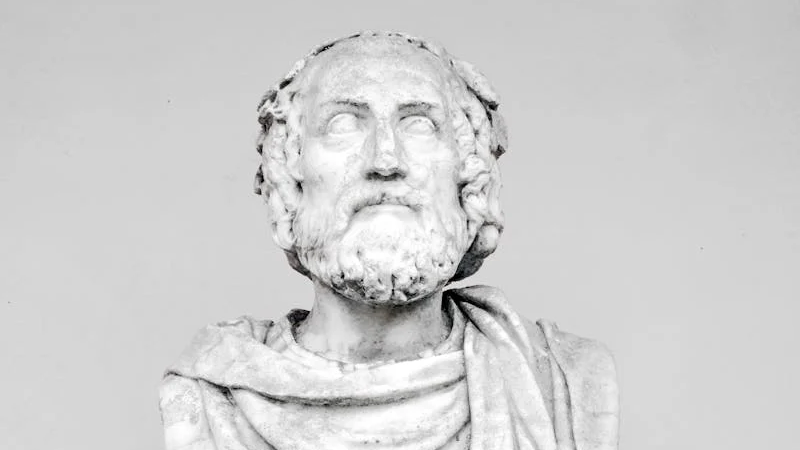Einstein once said, “Now Besso has departed from this strange world a little ahead of me. That means nothing. People like us…know that the distinction between past, present and future is only a stubbornly persistent illusion.” This statement reflects a perspective that has gained traction with new evidence suggesting that death, as we understand it, may indeed be an illusion.1
1. The Illusion of Death

Our current way of thinking goes on to assume that the world has an objective existence independent of the observer. However, numerous experiments have suggested otherwise. We view life as the activity of carbon and other molecules: we live for a while and then decay into the ground. This belief leads us to accept the concept of death, primarily because we identify ourselves with our physical bodies, which eventually perish. However, biocentrism, a theory proposed by Dr. Robert Lanza, argues that if we incorporate life and consciousness into the equation, many scientific puzzles can be explained, including why the universe appears fine-tuned for life.2
Read More: End-of-life Doctor Discusses What People Say in The Final Days Before Death
2. Consciousness, Reality and Death

Biocentrism states that space and time are not the solid entities we perceive them to be. Instead, they are constructs of our consciousness. For example, consider the famous two-slit experiment: when a particle is observed, it behaves like a particle and passes through one slit. Without observation, it acts like a wave, passing through both slits simultaneously. This indicates that reality is shaped by our consciousness.
Also, Heisenberg’s uncertainty principle (not THAT Heisenberg) suggests that we cannot measure a particle’s exact location and momentum simultaneously. This phenomenon, along with the understanding of particles being entangled over vast distances, further supports the notion that space and time are tools of our mind.
3. Death in a Timeless World

In a timeless, spaceless world, the idea of death does not hold. In this context, immortality wouldn’t imply a perpetual existence in time but rather an existence outside of time altogether. This idea aligns with recent experiments showing that light particles can communicate instantaneously as if there were no space or time separating them. Such findings suggest that our understanding of time and space—and, by extension, life and death—is deeply flawed.
4. Quantum Mechanics and Multiple Universes

Quantum mechanics challenges our current understandings of reality. The “many-worlds” interpretation, for example, states that every possible observation corresponds to a different universe. In this multiverse, all possible outcomes occur simultaneously, implying that death, as we perceive it, does not exist in any real sense, since we are still alive and death will have already taken place. This theory resonates with the principles of biocentrism, where consciousness plays a central role in shaping reality.
Read More: Doctor Convinced Without a Doubt That There’s Life After Death
5. Philosophical and Psychological Perspectives

The fear of death is a major influence on many human behaviors and beliefs, which is something covered by terror-management theory. This theory suggests that our existential dread drives us to cling to beliefs that connect us to something greater than our mortal selves.3 For physicists, grappling with the implications of quantum mechanics and the potential for an observer-dependent reality can be both unsettling and comforting. Consciousness influencing our universe can provide a sense of purpose and continuity beyond physical death.
6. The Future of Biocentrism

Dr. Robert Lanza’s biocentrism theory remains controversial, blending elements of science and philosophy to make something new. Critics argue that it lacks a solid mathematical foundation and veers into speculative territory, which is both a fair critique and completely true. However, Lanza continues to refine his ideas, and aims to bridge the gaps between biotechnology and physics. His work suggests that understanding consciousness could revolutionize our perception of life, death, and the universe.
Conclusion

Death, as traditionally understood, maybe an illusion shaped by our consciousness. Quantum physics and biocentrism have challenged the notion of an objective, observer-independent reality, suggesting that life and consciousness are central to the universe’s fabric. As Einstein implied and Lanza elaborates, our understanding of existence is limited by our linear (and limited) perception of time and space. Embracing these new perspectives could profoundly impact how we understand life and the afterlife.
Read More: 7 Signs That Death May Be Near in Someone With Dementia
Sources
- “Is Death an Illusion? Evidence Suggests Death Isn’t the End.” Psychology. Robert Lanza M.D. November 19, 2011.
- “Death, Physics and Wishful Thinking.” Scientific American. John Horgan. September 27, 2021.
- “Biocentrism Posits That Death Is Merely Transport into Another Universe.” Big Think. Philip Perry. March 3, 2017.

